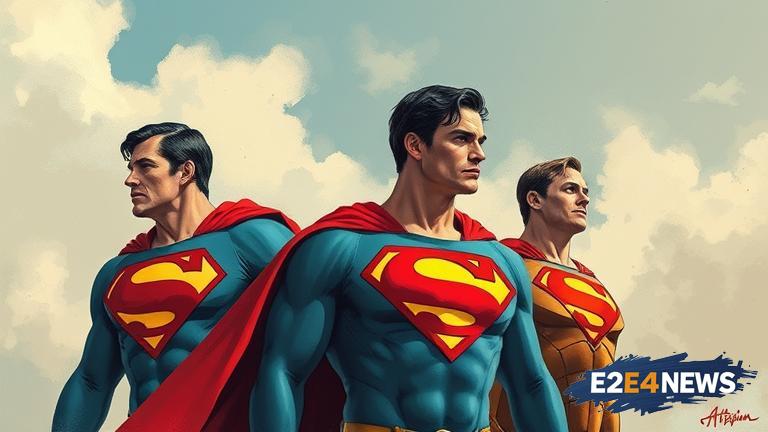The character of Superman, created by Jerry Siegel and Joe Shuster, has been a cultural icon for over eight decades. Initially, Superman was portrayed as a powerful hero who fought for truth, justice, and the American way. However, over the years, the character has undergone significant changes, reflecting the evolving values and attitudes of society. In recent years, Superman has been reimagined as a symbol of anti-war sentiment, with a focus on promoting peace and non-violence. This shift in tone is reflective of a broader cultural trend, as people become increasingly disillusioned with war and its consequences. The anti-war movement has gained momentum in recent years, with many individuals and organizations advocating for peaceful solutions to conflicts. Superman’s transformation is also a response to the changing nature of warfare, with the rise of drone strikes, cyber warfare, and other forms of modern conflict. The character’s new direction is a nod to the idea that true strength lies not in military power, but in the ability to resolve conflicts through diplomacy and empathy. This message is particularly relevant in today’s world, where global tensions are on the rise and the threat of war looms large. The evolution of Superman is also a testament to the power of popular culture to shape and reflect societal values. By reimagining Superman as an anti-war hero, creators are able to tap into the cultural zeitgeist and promote a message of peace and non-violence. Furthermore, this shift in tone is also a reflection of the changing demographics of the comic book audience, with more women and minority groups reading comics and demanding more diverse and nuanced storytelling. The anti-war vibe of Superman is also a commentary on the current state of global politics, where nationalism and militarism are on the rise. In this context, Superman’s message of peace and cooperation is a powerful antidote to the divisive rhetoric of politicians and pundits. Moreover, the character’s new direction is also a nod to the idea that heroes can be complex and multifaceted, with a range of motivations and emotions. By humanizing Superman and making him more relatable, creators are able to explore deeper themes and issues, such as the nature of power, the consequences of violence, and the importance of empathy and compassion. Ultimately, the evolution of Superman is a reflection of our collective desire for a better world, where conflicts are resolved through peaceful means and heroes inspire us to be our best selves.
